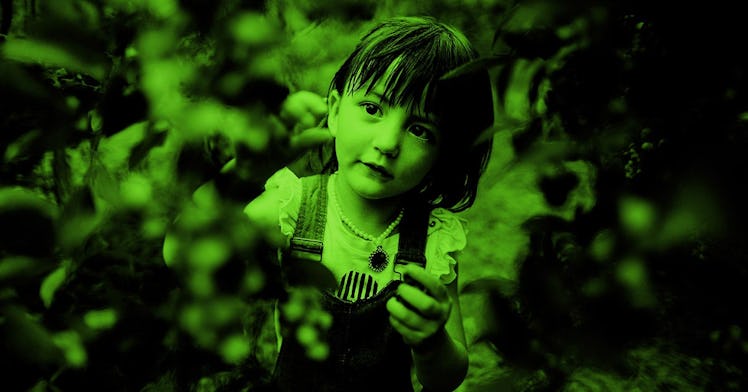How Will Our Children Look Back on Us?
In 2055, my son will be the age I am now. When I look in his eyes then, I want to have done everything I could to prevent the climate crisis.

The night my son was born in November 2018, I didn’t know if he would make it. After an emergency C-section, he took his first breaths in the neonatal intensive care unit at Mount Sinai Hospital on the Upper East Side in New York City. When I poked my finger in the incubator, he grabbed my hand, shifting my center of gravity forever.
My wife and I fell head first onto the sleep-deprived rollercoaster that is parenting. We cherished every moment. However, I dreaded when paternity leave came to an end. Reluctantly clocking back in at a big tech company, I longed to make a positive impact for future generations.
At the 2019 UN Climate Action Summit, youth activist Greta Thunberg sounded the alarm. “You have stolen my dreams and my childhood with your empty words… Entire ecosystems are collapsing. We are in the beginning of a mass extinction.”
Weeks prior, my son had begun to crawl.
As we filled balloons for my son’s first birthday, I worried how he would endure the climate crisis. I had a waning interest in climbing the corporate ladder as the planet burned. Thunberg’s warning made me question everything. I could not remain apathetic about the world we leave behind.
Five months later at a West Village pub, a co-worker shared joy for his newborn son. But my internal dialog was filled with questions. 2010-2019 was the hottest decade ever recorded and we are not on track to prevent irreversible climate tipping points. What gave us the confidence to have kids? And why were we not doing anything to save them?
The next week, the coronavirus pandemic took hold, forcing us to work from home. It seems clear, given the inadequacy of progress thus far, that the urgency of the climate problem requires mandates comparable in severity.
I grew disheartened for my son’s generation. We will either be the generation to correct this mess, or we won’t. Compelled to join the climate movement, I began courses in the Columbia University Sustainability Management graduate program. I was afraid of going back to school. But with my son at 17 months, I was more terrified of not trying.
One week into grad school, I met an alum. He asked, “Have you ever wondered if we would be better off knowing we are the last link in the chain?” The odds are stacked against us. However, I can’t believe we have already lost. I want to fight the good fight, even if this may be the final act.
On a frigid night, water pipes burst on the Columbia University campus, closing the main entry to Havemeyer Hall. Running late for class through a basement tunnel, I questioned going back to school. With tape covering seats to spread out masked students, the professor pointed to the live streaming video camera with a wallet-sized child photo above the lens. “You see that photo over the camera? That’s my granddaughter.” We each have someone to save.
At Carroll Park in Brooklyn with another dad, we watched our toddlers traverse the jungle gym. “We got great news,” he declared. “We’re having another kid.” How could he do that so soon? From the pandemic to climate crisis, what gives anyone hope to have children?
My doubts for humanity have grown alongside a sense of responsibility. I wake up stricken with anxiety, questioning if I am doing enough. When the sun rises, I often run around the Brooklyn Bridge. The courage to persevere surfaces when looking at the East River waves, thinking about sea level rise, and my kid.
As my son learns to read, we must rapidly slash carbon across all sectors. When greenhouse gases must be cut in half, he will be surviving middle school. When he goes to prom, will humanity be on track? As we aim for carbon neutrality by mid-century, I hope to walk him down the aisle. His life milestones are inextricably entangled with the climate crisis.
How will our children look back on us? The 2021 UN Climate Change Conference wraps up in Glasgow tomorrow, and my son turns three this Sunday. In 2055, he will be the same age I am today. When I look in his eyes then, I want to have done everything I could. With love as my turning point, my life purpose is to provide a better one for him.
Will you make the great climate pivot? Climate scientists articulate problems but cannot save humanity alone. Our individual actions really do matter. We need an uprising where we make sustainable choices to ratchet down carbon. We can each choose to be climate warriors that improve the human condition. Let’s give survival our best shot.
When confronted by the climate crisis, my wife and I contemplate if we should bring a second child into this world. All I know for certain is that at some point we felt optimistic enough to have one. I hope that feeling returns.
Jeffrey Prosserman is the father of two (one human and one dog) living in Brooklyn, New York. He is the founder and CEO of Voltpost where the team is transforming lamp posts into electric vehicle chargers to decarbonize city mobility.